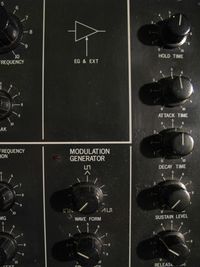School of Art Digital Literacy
SCHOOL OF ART | Course Outline Year 1 | VISUAL ARTS CORE STUDIO 1 – DIGITAL LITERACY
This course is taught in the Bachelor of Visual Arts 2009 by The Electronic Arts section in the School of Art at Otago Polytechnic.
Lectures are every Wednesday (Weeks 2-14) at 9am (until 10am) in the School of Art Lecture Theatre. Workshops are throughout the day on Wednesday.
Contents
Aims
In Digital Literacy, students are introduced to a wide range of fundamental digital devices (hardware) and programmes (software) as well as problem solving techniques related to their uses. Students will gain an understanding of relevant digital skills in relation to their study and art practice. This paper will ensure that all students gain a fundamental confidence in the use of a variety of digital tools, and an over-arching understanding of their wider application.
Learning Outcomes
At the successful completion of this course, students will be able to:
- Safely use digital hardware.
- Recognise a variety of software programmes and identify their use.
- Show evidence of attendance at the lecture series.
- Demonstrate an ability to use relevant digital tools that support different areas of study.
- Demonstrate an understanding of the wider context of digital technologies.
- Begin to apply digital skills in research and in areas where this is relevant for the contextualisation and making of visual art.
- Have some understanding of issues around intellectual property.
- Have some understanding of issues around digital communities.
Content
Students will attend a weekly lecture series that covers an introduction to computer hardware and various softwares, the use of the internet, and conceptual frameworks that surround these issues in study and arts practice. Students will also attend weekly workshops that provide a practical a hands-on introduction to many of the discussed digital tools, and will complete weekly exercises that provide them with experience of the technologies. Finally students will present their studio work, applying their digital skills to a conceptual project.
Assessment
Studio work is assessed at the end of each course and all students are present for their assessment. They present their research both in documented form and orally to the examiner/s.
Studio Research Activity
-Showing attendance at directed classes, including the recording of information learned weekly in lectures and workshops and any additional research. Should also show evidence of self-directed input. 20% Due 10th June 2009
Project and Presentation
-Demonstration that all learning outcomes have been presented in documentation form and orally. 80% DUe 10th June 2009
Resources
Required:
Students will be given access to computers, computer storage space (i.e. for saving work), and the internet. Students may find it useful to have use of an external storage device, such as a USB hard drive, or a recordable CD/DVD but this is not required for this paper.
Recommended:
That students use suitable means to record information at lectures and workshops.
Download the full Course Outline as a pdf file.
Lecturers
Lecturer & Co-ordinator
Rachel Gillies (BA(Hons), PGDip Sc, GCTLT) is a lecturer in both the School of Art, and the School of Design at Otago Polytechnic and has backgrounds in photography, multimedia technology, contemporary art gallery management, graphic design and electronic arts.
Teaching and Research Assistant
Max Bellamy (BFA) is a recent graduate from the Electronic Arts section at The School of Art (Otago Polytechnic). Max will be working in the workshop sessions in this paper and is an excellent digital practitioner, with his own art practice.
Guest Lecturers
Dr. Su Ballard is a Principal Lecturer in Electronic Arts in the School of Art Otago Polytechnic. Her research focuses on digital aesthetics, visual culture, sound, and media art histories. She really likes art that experiments in the spaces between analogue and digital media, has a fondness for 1970s experimental film and video, and wrote her PhD on noise, error, frequency and materiality in digital installation art from New Zealand. She is also a curator, writer, and musician.
Pam McKinlay is the School of Art's Visual Resources Technician. She has wide experience working in the cultural sector. If you have any questions about copyright, Pam is the person to contact.
Leigh Blackall is a Principle Lecturer and works in the Education Development Centre at Otago Polytechnic. He is an expert on flexible learning and online social media.
Support
Student Portal All you need to know about the IT services and support at Otago Plytechnic.
Class Blogs
You will find links here to all class participant blogs.
Hamish Archer Ruby Anderson Lisa Baird Jeska Beardsmore Natasha Boon Marian Brandish Veronica Brett Pania Brunning Bianca Burgess-Heald Lesleigh Burrell Danielle Caddy Kerry Carey Katie Crick Sam Dolan Carolyn Edmonds Julie-Ann Fleming Sarah Fraser Nicki Gilmore Philip Greenwood Spencer Hall Nyree Ingle Ashleigh Inglis Lucinda King Jessica Kitto Leah Kelly Meghan Lawrence Thomas Lord Richard Martin Lucinda McConnon Lynda McNamara Agata Michalczyk Karine Moinaux Sarah Murphy Lucy Noone Tomas Richards Rosie Riley Jemma Rothery Rose Russell Laura Sargisson Alex Saville Daniel Sewpersad Damian Smith Krystle Staiger Leanne Sutherland Brita Theewis Drew Weeda Joe Withington Antonia Wood Jacob Wright
Timetables & Content
Semester 1: Weeks 1 - 6
Semester 1: Weeks 7 - 12
Semester 1: Weeks 13 - 15


